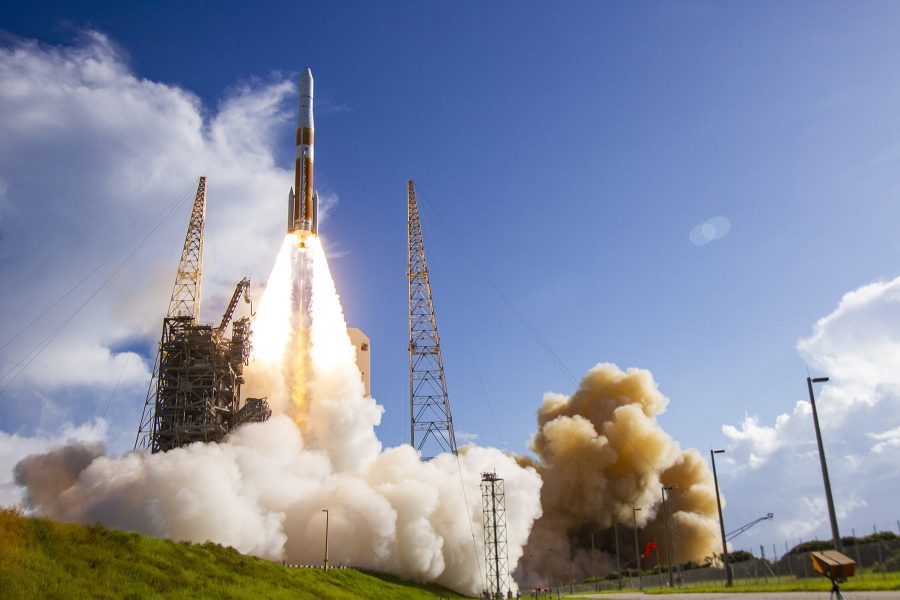The Space Force’s third GPS III satellite will head to space June 30, after its launch was rescheduled from late April due to the coronavirus pandemic.
SpaceX’s Falcon 9 rocket will carry the Lockheed Martin-built satellite from Cape Canaveral Air Force Station, Fla. Once on orbit, it will replace an older satellite in the 31-piece GPS constellation.
New GPS III systems boost the accuracy of navigation and timing software and are harder to attack by jamming signals. This is also the first national security space launch in which SpaceX will try to recover and reuse its rocket booster, said Col. Edward Byrne, senior materiel leader in the Space and Missile Systems Center’s medium Earth orbit space systems division.
“The GPS program has set new standards of resilience and stability to respond to this crisis by successfully delivering the next third-generation GPS satellites to over four million military and civilian users around the world,” he said.
A Lockheed spokesman declined to provide the unit cost of the third satellite.
The fourth and fifth GPS III satellites are ready for launch, said Tonya Ladwig, acting vice president of Lockheed Martin Space’s navigation systems division. The sixth, seventh, and eighth satellites are built and going through testing, and the ninth and 10th satellites are being assembled.
As the Defense Department, Congress, and the Federal Communications Commission fight over whether Ligado Networks should be allowed to use a part of the radio frequency spectrum that neighbors the section used by GPS, Ladwig said the Space Force has not instructed Lockheed to start working on any particular technologies that could help GPS coexist with Ligado’s systems.
Employees involved with the launch are routinely checking for COVID-19 symptoms, covering their faces, avoiding cross-contamination by keeping crews on separate missions, shrinking crew sizes, and cleaning often.
Brig. Gen. Douglas A. Schiess, 45th Space Wing commander at Patrick Air Force Base, Fla., said no one working in the operations center has gotten sick so far. Florida’s coronavirus cases continue to spike this month, with more than 5,000 new COVID-19 cases a day on June 24 and 25, according to New York Times data.
“Though the journey has been difficult, we have prevailed, which is truly a testament to all parties involved in this mission,” Byrne said.


